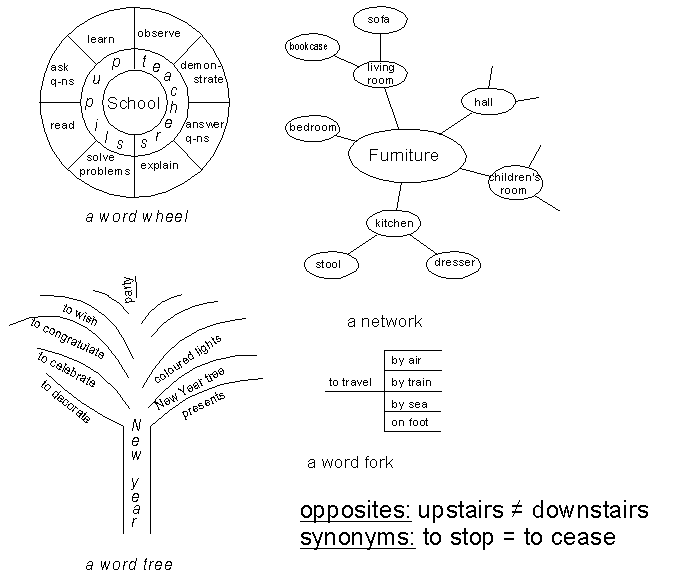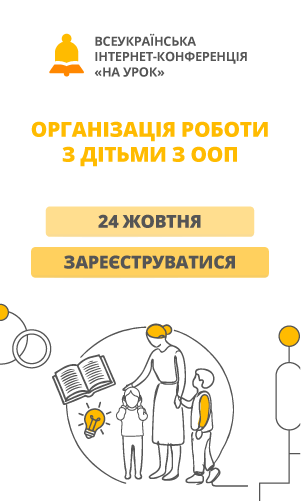Improve Your Memory in Learning
"Improve Your Memory" для 10-го класса
Тема: “Улучшайте свою память”.
Цель занятия:
- Учебный аспект: формирование лексических навыков по теме “Улучшайте свою память” и совершенствование коммуникативных умений в чтении и говорении.
- Познавательный аспект: накопление знаний о способах развития человеческой памяти.
- Развивающий аспект: развитие памяти учащихся через формирование навыков эффективного запоминания; развитие способностей к аналогии, обобщению, анализу, синтезу.
- Воспитательный аспект: воспитание потребности к самосовершенствованию, овладению эффективными способами организации учебного труда.
Lesson 1
1. Warming up. Activating Topical Vocabulary.
Task: Match the words and their definitions.
|
Memory |
– be good at remembering things |
2. Pair Discussion.
Task: Discuss these questions in pairs.
What do people use their memories for?
Do you use your memory while learning a foreign language?
Do you have a good or a bad memory for English words?
Which memory is more important: a short or a long memory? Why?
Can people develop their memories?
Do you know anything about human memory?
Do you train your memory? Which way?
Each pair of Ss presents the answers to the whole class.
3. Pre-reading Activity.
Teacher should display the picture of the nine planets.
Task: Within 3 minutes learn the order of the planets from the nearest to the sun to the furthest.
Ss name the planets by memory and answer Teacher’s questions:
1) How many planets did you get right?
2) Which way did you remember:
– do you know the order in you own language?
– did you translate the names into Russian?
– did you repeat the names several times?
– did you write the names down?
– did you use pictures in order to remember?
– did you do anything else? If so, what?
4. Reading. Text “Mnemonics and How They Work”.
Task: read the text to find out more about memory techniques. While reading list the principles of memorizing.
Teaching New Vocabulary:
Mnemonics – мнемоника
To register – запечатлевать
Texture – строение, структура
link – связующее звено
exaggeration – преувеличение
mental – умственный
ridiculous –смешной, нелепый
“Mnemonics and How They Work ”
One useful learning technique is mnemonics. The ancient Greeks developed this memory system from their worship of Mnemosyne, who was the goddess of memory. They learnt that you can remember things by linking them together in some way. For example, as soon as your brain registers the word “apple” it remembers the colours, tastes, textures, smells, etc. of that particular fruit. So memory links can be made ber and longer-lasting by following these principles:
1 IMAGINATION. The more you apply your imagination to memory links, the more easily you will remember something.
2 EXAGGERATION. Exaggerate the size, shape, sound, etc. of all your mental images.
3 HUMOUR. The funnier and more ridiculous you make your images, the more memorable they will be.
4 MOVEMENT. In any mnemonic image, movement makes it even easier for your brain to remember things.
So, if you wanted to remember the order of the nine planets from the sun, you might simply create a fantastic story in your imagination. For example, imagine that you are in space, reading a giant thermometer which breaks and covers the floor with tiny balls of silver liquid (Mercury). A beautiful goddess (Venus), who is wearing white, comes in to see what is happening, etc.
This all sounds very good, but is there any scientific support for these beliefs? The answer is yes! After all, what the ancient Greeks were suggesting means that we use both the left and the right side of our brains, and there is a lot of evidence that association techniques do work.
4. Post-reading Pair work.
Task: Read the text carefully again and answer the questions.
- Did the techniques you used to remember the order of the planets follow any of the principles you have just read about?
- What principles do you use to help you learn new English vocabulary? Share your experience of using mnemonics and other learning techniques, and consider how you might use them in foreign languages.
- Which way of memorizing words is better: to associate them in meaning or to arrange them in the alphabetical order?
- Which way is easier: to remember separated words that begin with the same letter or words that are based on the same root? (article, apple, antonym, –or – price, priceless, pricey)?
5. Presentation of the ways of organizing a vocabulary notebook.
Ss come to the following conclusion: they can make memorizing English words easier by associating them in a certain way. It will make their memory links ber and longer-lasting. Learning words together that are associated in meaning is a popular and useful way of organizing Ss’ vocabulary study.
T suggests some ways of organizing vocabulary notebooks. They are the following: a word wheel, a network, a word tree, a word fork, opposites, synonyms.

6. Organizing a Vocabulary Notebook. Group work.
Task: use one of these ways to write down the words on topic “The English Language”.
Lesson 2.
1. Warming up. Brainstorming. Small group activity.
Task: Ss make as many word combinations with the word “memory” as possible.
2. Feedback.
Ss answer the following questions:
– What does the word “mnemonics” mean?
– What is the basic idea of mnemonics?
– What principles should we follow to make memory links ber?
– Were there any useful ideas for you?
3. Reading for the main idea.
Text “How to Boost Your Memory”.
Task: read the following article and choose a heading from the list below for each paragraph. There is one extra heading which you do not need to use.
- A very powerful mechanism.
- Why we forget our earliest memories.
- Short term and long term memory
- Health body; health mind.
- An old approach but a good one.
- Are you forgetful?
“How to Boost Your Memory”
(1---)
Perhaps you do badly in exams because you can’t recall facts and figures or words and structures in a foreign language. Are you always losing things or forgetting the books you need for school that day? Relax! Help is close at hand. There’s a tremendous range of methods to boost your memory.
(2---)
Your memory is like a brilliant, but unreliable computer storing a vast amount of information. In fact the memory’ capacity is theoretically unlimited. The brain can record more than 86 billion bits of information every day and our memories can probably hold 100 trillion bits in a lifetime.
(3---)
Nevertheless only about 20 per cent of our daily experience is registered, and of that only a tiny proportion is loaded into long tern memory. Most of the images and ideas that pass through our minds during a day are held for only 25 to 30 seconds. This is just long enough for us to be able to keep the words of a sentence in our head as we read it so we understand its meaning.
(4---)
Normal, healthy people can improve their memories very easily. First of all learn to relax if you’re trying to memorize something. You may miss important items if your mind is on something else or if you weren’t paying attention because of anxiety – you retain information best when you are alert and concentrating. If you’re having trouble concentrating, increase the flow of oxygenated blood to the brain. Despite its small size the brain uses 20 per cent of the body’s oxygen requirement. So try to combine study with exercise, particularly the kind of exercise that gets you breathing faster. Keep your mind fit as well as your body by doing mental workouts. Crosswords, Scrabble and quizzes all help to keep the mind in shape.
(5---)
You can also train your memory in certain ways. The ancient Greeks invented memory systems called mnemonics, and they still work today. Most systems involve associating the things you want to remember with something you already have safely stored in your head, and the most effective systems make use of visual imagery, smell, touch and sound. If you want to remember someone’s name, try to find something distinctive about their hair, nose or eyes to associate with the name, e.g. Jane’s wearing jewellery, Tim’s tall or Bill’s got a beard. If you want to remember numbers try to make associations between numbers in sequence – think of people’s ages, special dates, whether they’re odd or even.
Key: 1F 2A 3C 4D 5E
4. Focus on Vocabulary.
Task 1: Look through the text and find the synonyms for each word.
|
Improve your memory – ? |
(boost your memory) |
5. Check your word power by filling in the gaps.
- In fact the memory’s capacity is theoretically ...
- Healthy people can ... their memories very easily.
- You retain information best when you are ... and ...
- Try to combine ... with ...
- Keep your mind fit as well as your body by doing ...
- ..., ... and ... all help to keep the mind in shape.
- The most effective memory systems make use of ..., ..., ... and ...
- If you want to remember things, try to make ...
6. Reading for detail.
Task: read the text “Memory” and illustrate the following idea: “Keep your mind fit as well as your body.”
“Memory”
If you do not use your arms or legs for some time, they become weak; when you start using them again, they slowly become b again. The memory works in the same way. When someone says that he has a good memory, he really means that he keeps his memory in practice by exercising it regularly. When someone else says that his memory is poor, he really means that he does not give enough opportunity to become b. Not all of us can become extremely b or extremely clever; but all of us can, if we have ordinary bodies and brains, improve our strength and our memory by the same means – practice.
Have you ever noticed that people who cannot read or write usually have better memories than those who can? Why is this? Of course, because those who cannot read or write have to remember things: they cannot write them down in a little notebook. They have to remember dates, times, prices, names, songs and stories; so their memory is the whole time being exercised.
7. Home Research: find out more about effective ways in which you can improve your ability to memorize things and set them out as a list of practical suggestions for the pupils of your school.
Список использованной литературы:
- “First Certificate Gold Exam Maximiser”, Sally Burgess, Richard Ackham
- “Streetwise” Intermediate, Rob Nolasco
- Further Comprehension and Precis Pieces for Overseas Students, Hill L. A., Fielden R. D. S.
- “English Vocabulary in Use”, Michael McCarthy. Felicity O’Dell


про публікацію авторської розробки
Додати розробку
